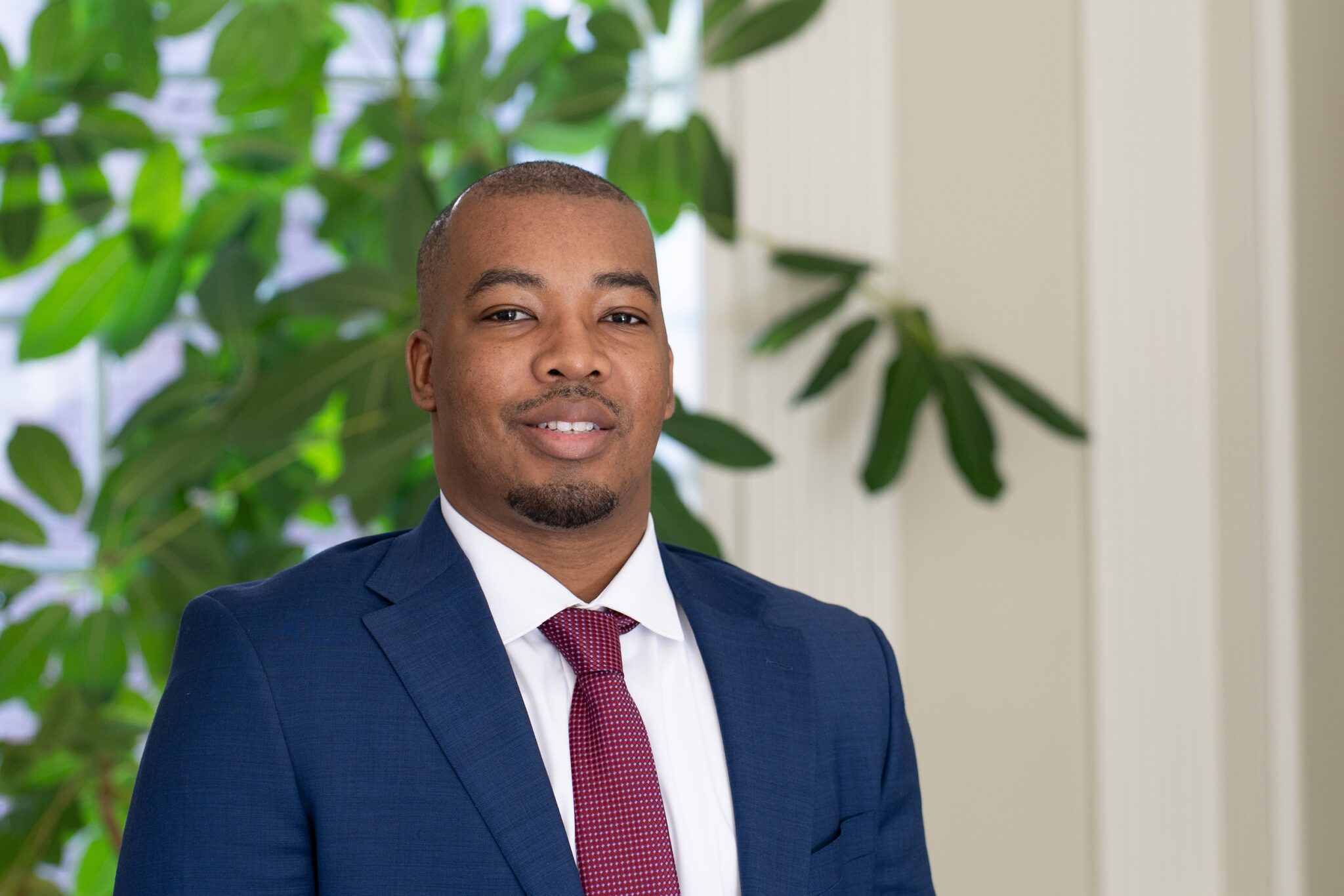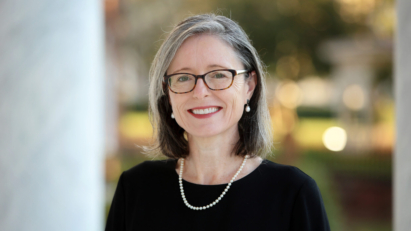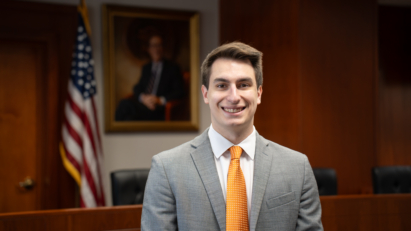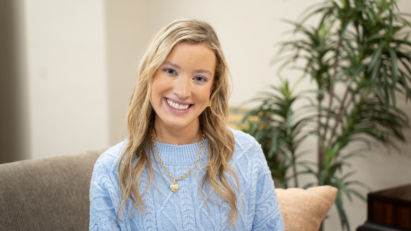Finding his calling: How Lucious Moore left a successful career to pursue his purpose in law

Prior to joining the Mercer Law School Class of 2026, Lucious Moore was a litigation claims supervisor at GEICO. In this role he supervised a team of adjusters that handled claims where their clients had been sued. Moore said he had an interest in studying law growing up, but it was his time at GEICO that helped him make the jump.
“In my position I was constantly negotiating with plaintiff attorneys and discussing litigation strategy with our defense counsel,” he said. “It seemed like being a lawyer was calling me. Interestingly, I had a coworker randomly ask me to join her in studying for the LSAT. I did, and the rest is history.”
Moore left his lucrative, full-time job to pursue a law degree. “I had a career where I had built relationships,” he said. “I had built a life for myself that I was going to have to leave behind. I had purchased a house, and I was used to receiving a paycheck every two weeks. To say the least, I was nervous. But I am a firm believer in the idea that God will not let you become comfortable in places or situations that are not meant for you. Prior to coming to law school, I constantly felt a sense of restlessness, but since I started school here, I feel as though I’ve found what was meant for me.”
Having earned his bachelor’s degree in business marketing at Fort Valley State University in 2013, Moore thought his school days were over. Being a post-traditional-age student has given him a certain level of appreciation for learning. He said that having had a career, paying bills, filing taxes, and maintaining a social life, taught him balance and provided multitasking skills which are needed for law school.
“I have matured,” he said. “I find that I am calmer and more level, which helps when you are editing a law review article, drafting a legal brief, studying for a final exam, and attending a law-related dinner event all in one night.”
Moore will be the first lawyer in his family. He has interests in corporate litigation, medical malpractice, premises liability, and criminal defense, but is open to wherever his journey takes him. In fact, what drew him to pursue a degree in law is that he would not be tied to doing the same thing for the next thirty years. “Every aspect of our lives from government to entertainment to commerce to education to real estate to employment needs a good lawyer,” he said.
Moore has served as a BLSA academic co-chair, SBA diversity and minority concerns chair, and group peer mentor for Professor Pam Wilkins’ Torts class. In his role as BLSA academic co-chair, he tutored and helped fellow BLSA members prepare for exams. He also oversaw last year’s Bear Fest. Currently, Moore serves on the SBA Budget and Appropriations Committee and is a member of Mercer’s Habeas Clinic. In addition to his leadership and service, he is a member of the Mercer Law Review and is published in Volume 76. His casenote, “A Rose by Any Other Name Would Smell as Diluted: Does the Eleventh Circuit’s Interpretation of the Gingles’ Preconditions in Rose v. Sec’y Lack Poetic Justice?” examines intersectionality and how facially race-neutral laws—particularly those related to voting rights—can impact marginalized communities.
Last summer, Moore was part of the Civics Field Placement program, teaching high school students about their rights and civic duties. He describes experience as rewarding, but that what he learned about himself was even more important. “I was able to get out of my comfort zone and learn that we all have something to give back. No matter where you are in your current journey there is always someone who can gain from your knowledge and presence,” he said. “I learned that we all have so much to give to our community just based on our experience as law students. While we had informative discussions about civic duties and the government, I think the most important piece was allowing the students to interact with us and see that whatever they want to be is attainable.”


